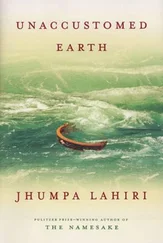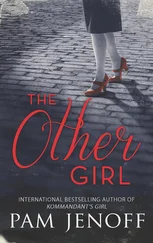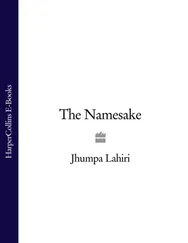Jhumpa Lahiri
In Other Words
Readers may ask why I chose not to translate this book myself from Italian into English. I explain my motivation, in part, in the chapter called “The Hairy Adolescent.” There I describe the surprising difficulty of translating from Italian, a language in which I had only begun to express myself creatively, into English, the language of my previous books. I was reluctant to move back and forth between the two. My impulse at the time was to protect my Italian. Returning to English was disorienting, frustrating, also discouraging. It made me acutely aware of how limited my Italian was compared with my English. It made me question the value of the experiment I had undertaken.
My Italian is still limited compared with my English. And yet it is the sole language in which I continue to write. Apart from obligatory correspondence, I have written exclusively in Italian for more than two years now. These few words are, in fact, the first formal prose I have composed in English since my last book, The Lowland, was completed, in 2012.
Writing in Italian is a choice on my part, a risk that I feel inspired to take. It requires a strict discipline that I am compelled, at the moment, to maintain. Translating the book myself would have broken that discipline; it would have meant reengaging intimately with English, wrestling with it, rather than with Italian.
In addition, had I translated this book, the temptation would have been to improve it, to make it stronger by means of my stronger language. But I wanted the translation of In altre parole to render my Italian honestly, without smoothing out its rough edges, without neutralizing its oddness, without manipulating its character. I instinctively felt, when I learned that the book would be published in English, that another translator, one with more experience and with greater objectivity, was best suited to perform this operation. I am therefore grateful to Ann Goldstein for bringing this book to English-language readers.
For Paola Basirico,
Angelo De Gennaro,
and Alice Peretti
…I needed a different language: a language that was a place of affection and reflection.
— ANTONIO TABUCCHI
I want to cross a small lake. It really is small, and yet the other shore seems too far away, beyond my abilities. I’m aware that the lake is very deep in the middle, and even though I know how to swim I’m afraid of being alone in the water, without any support.
The lake I’m talking about is in a secluded, isolated place. To get there you have to walk a short distance, through a silent wood. On the other side you can see a cottage, the only house on the shore. The lake was formed just after the last ice age, millennia ago. The water is clear but dark, heavier than salt water, with no current. Once you’re in, a few yards from the shore, you can no longer see the bottom.
In the morning I observe people coming to the lake, as I do. I watch them cross it in a confident, relaxed manner, stop for some minutes in front of the cottage, then return. I count their arm strokes. I envy them. 
For a month I swim around the lake, never going too far out. This is a more significant distance — the circumference compared to the diameter. It takes me more than half an hour to make this circle. Yet I’m always close to the shore. I can stop, I can stand up if I’m tired. It’s good exercise, but not very exciting.
Then one morning, near the end of the summer, I meet two friends at the lake. I’ve decided to make the crossing with them, to finally get to the cottage on the other side. I’m tired of just going along the edge.
I count the strokes. I know that my companions are in the water with me, but I know that each of us is alone. After about a hundred and fifty strokes I’m in the middle, the deepest part. I keep going. After a hundred more I see the bottom again. 
I arrive on the other side: I’ve made it with no trouble. I see the cottage, until now distant, just steps from me. I see the small, faraway silhouettes of my husband, my children. They seem unreachable, but I know they’re not. After a crossing, the known shore becomes the opposite side: here becomes there. Charged with energy, I cross the lake again. I’m elated.
For twenty years I studied Italian as if I were swimming along the edge of that lake. Always next to my dominant language, English. Always hugging that shore. It was good exercise. Beneficial for the muscles, for the brain, but not very exciting. If you study a foreign language that way, you won’t drown. The other language is always there to support you, to save you. But you can’t float without the possibility of drowning, of sinking. To know a new language, to immerse yourself, you have to leave the shore. Without a life vest. Without depending on solid ground.
A few weeks after crossing the small hidden lake, I make a second crossing, much longer but not at all difficult. It will be the first true departure of my life. On a ship this time, I cross the Atlantic Ocean, to live in Italy. 
The first Italian book I buy is a pocket dictionary, with the definitions in English. It’s 1994, and I’m about to go to Florence for the first time, with my sister. I go to a bookshop in Boston with an Italian name: Rizzoli. A stylish, refined bookshop, which is no longer there.
I don’t buy a guidebook, even though it’s my first trip to Italy, even though I know nothing about Florence. Thanks to a friend of mine, I already have the address of a hotel. I’m a student, I don’t have much money. I think a dictionary is more important.
The one I choose has a green plastic cover, indestructible, impermeable. It’s light, smaller than my hand. It has more or less the dimensions of a bar of soap. The back cover says that it contains around forty thousand Italian words. 
As we’re wandering through the Uffizi, amid galleries that are almost deserted, my sister realizes that she’s lost her hat. I open the dictionary. I go to the English-Italian part, to find out how to say “hat” in Italian. In some way, certainly incorrect, I tell a guard that we’ve lost a hat. Miraculously, he understands what I’m saying, and in a short time the hat is recovered.
Every time I’ve been to Italy in the many years since, I’ve brought this dictionary with me. I always put it in my purse. I look up words when I’m in the street, when I return to the hotel after an outing, when I try to read an article in the newspaper. It guides me, protects me, explains everything.
It becomes both a map and a compass, and without it I know I’d be lost. It becomes a kind of authoritative parent, without whom I can’t go out. I consider it a sacred text, full of secrets, of revelations. 
On the first page, at a certain point, I write: “provare a = cercare di” (try to = seek to).
That random fragment, that lexical equation, might be a metaphor for the love I feel for Italian. Something that, in the end, is really a stubborn attempt, a continuous trial.
Читать дальше













